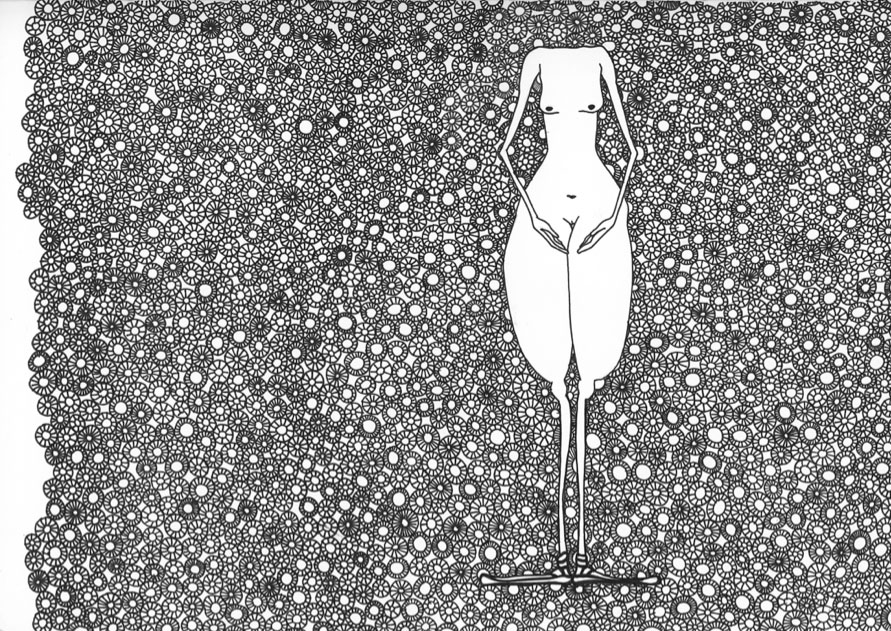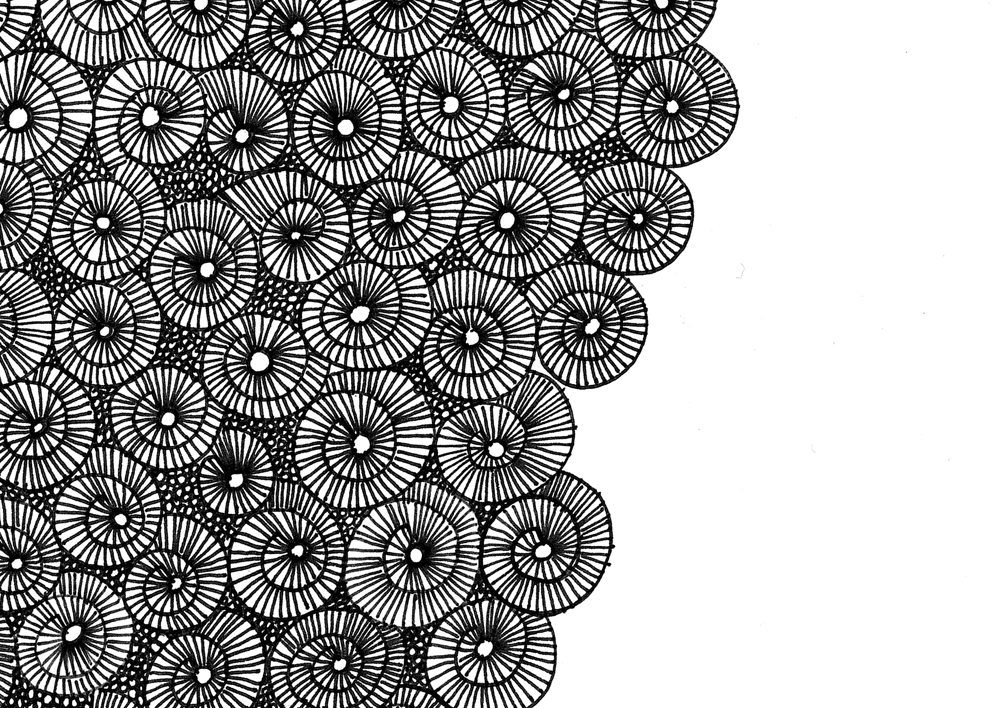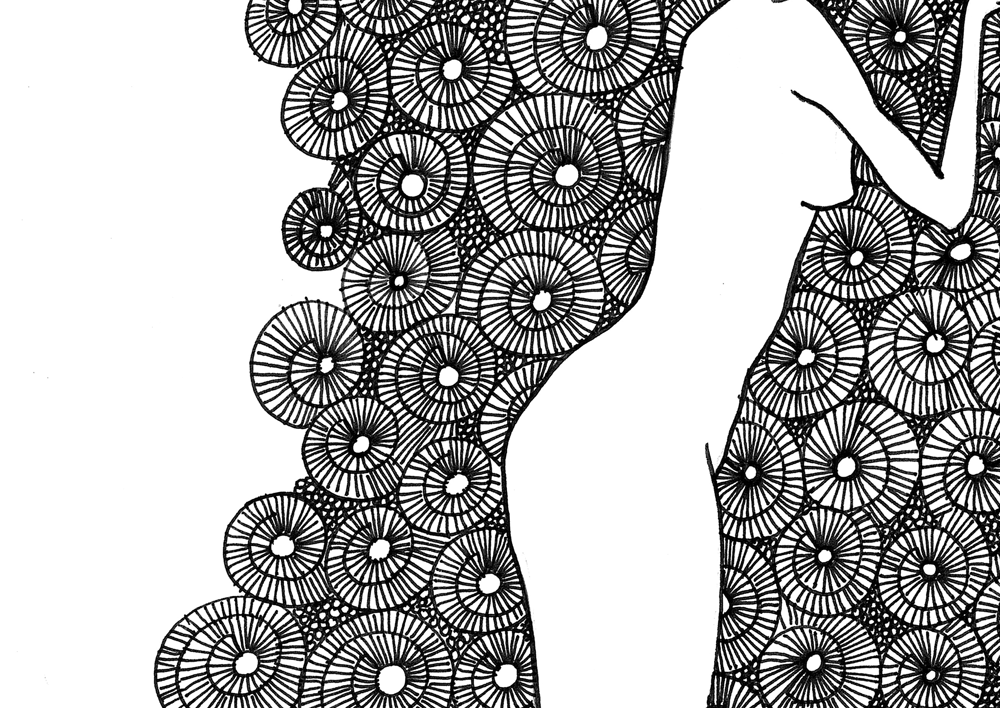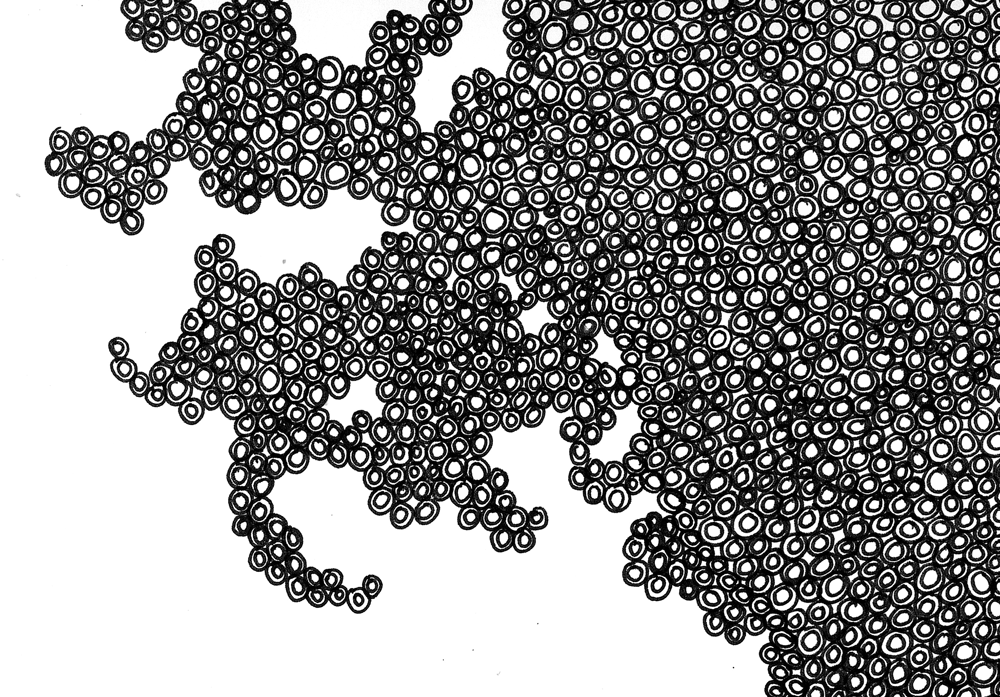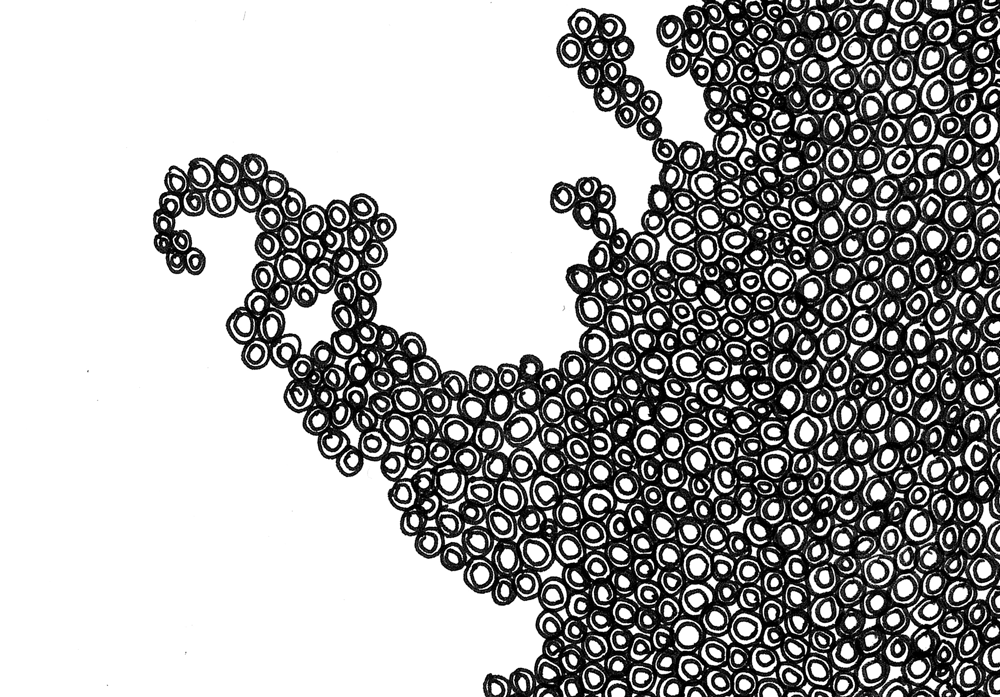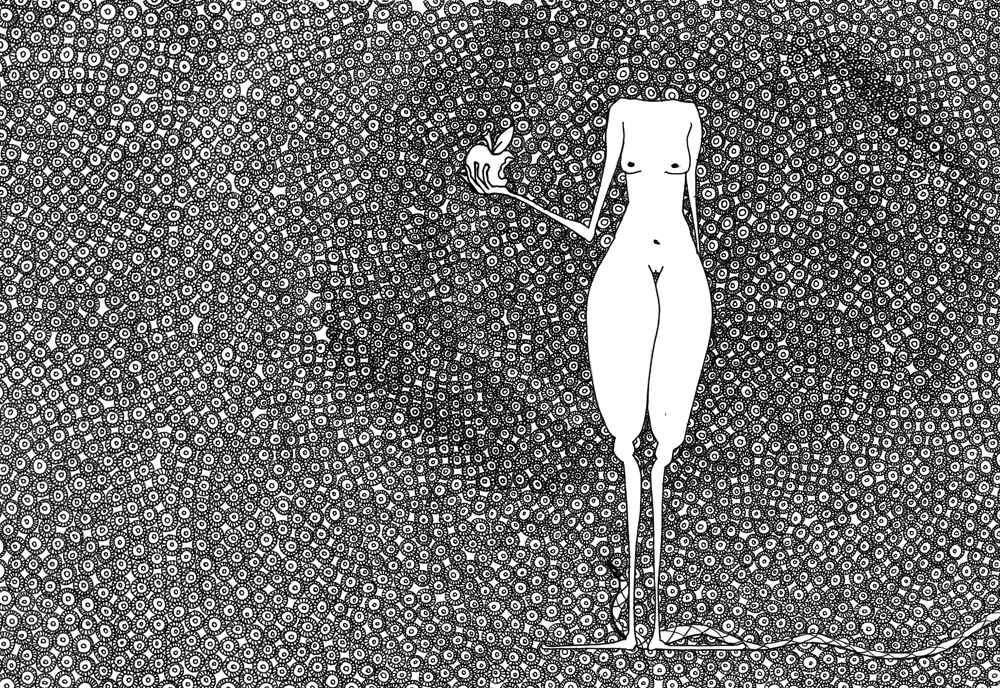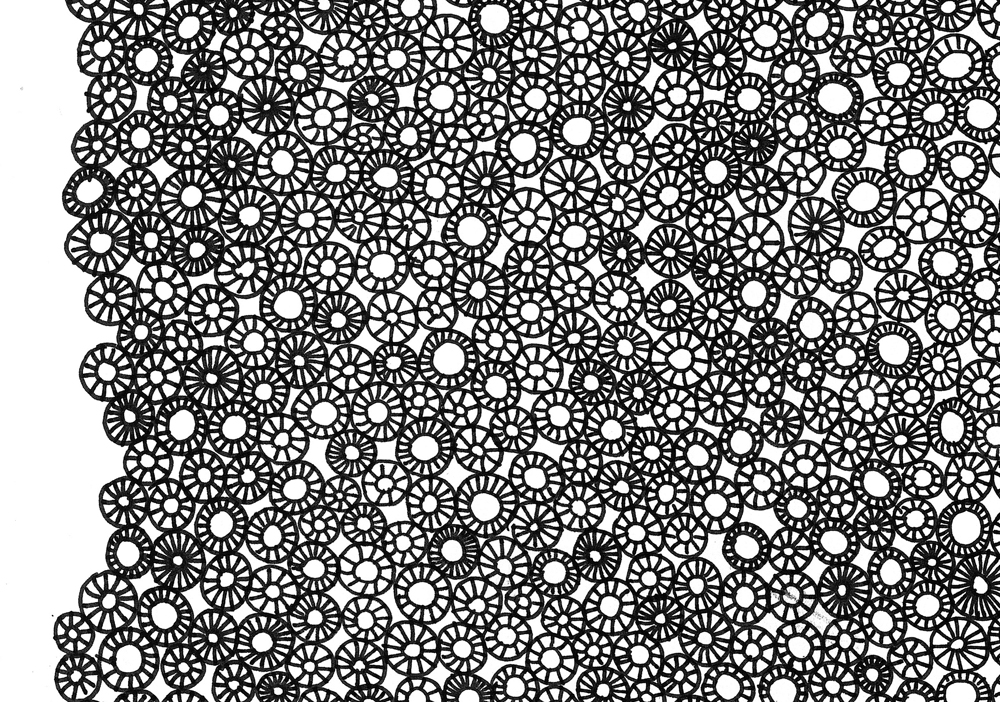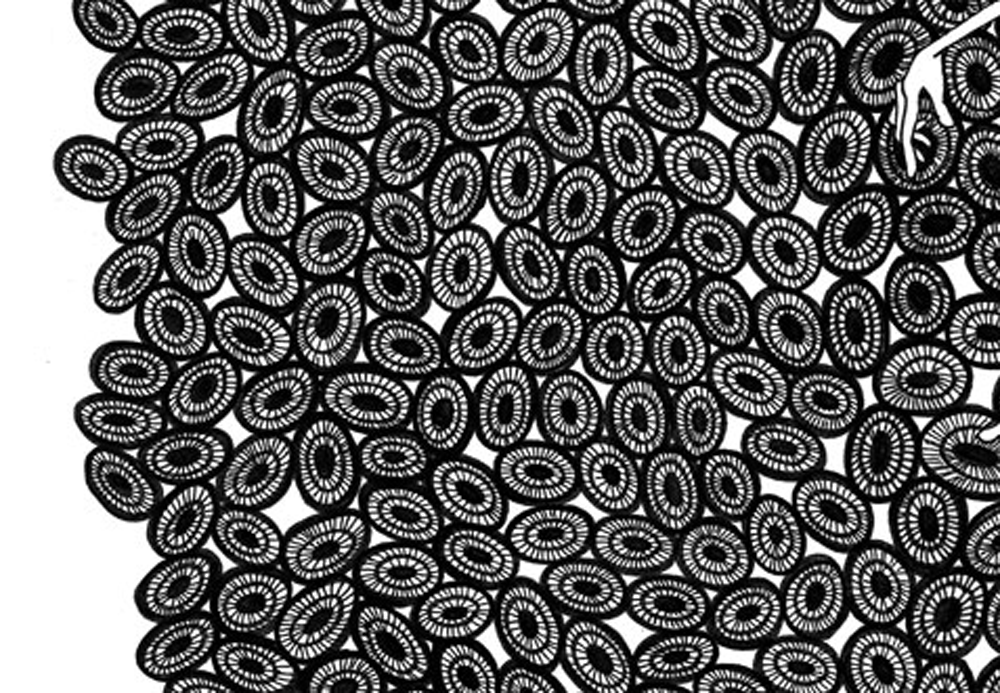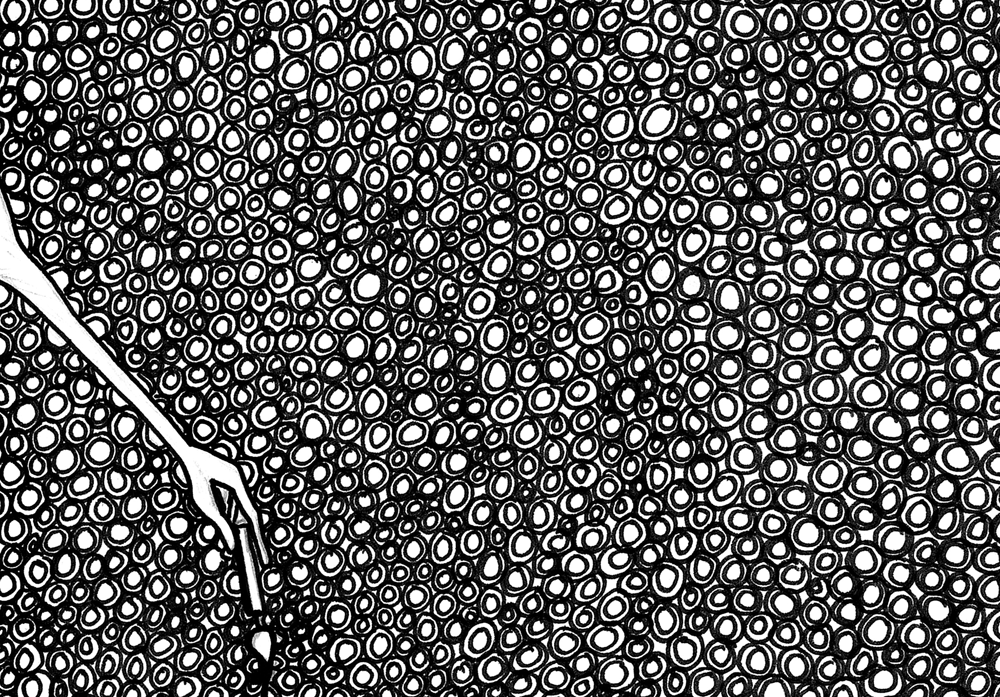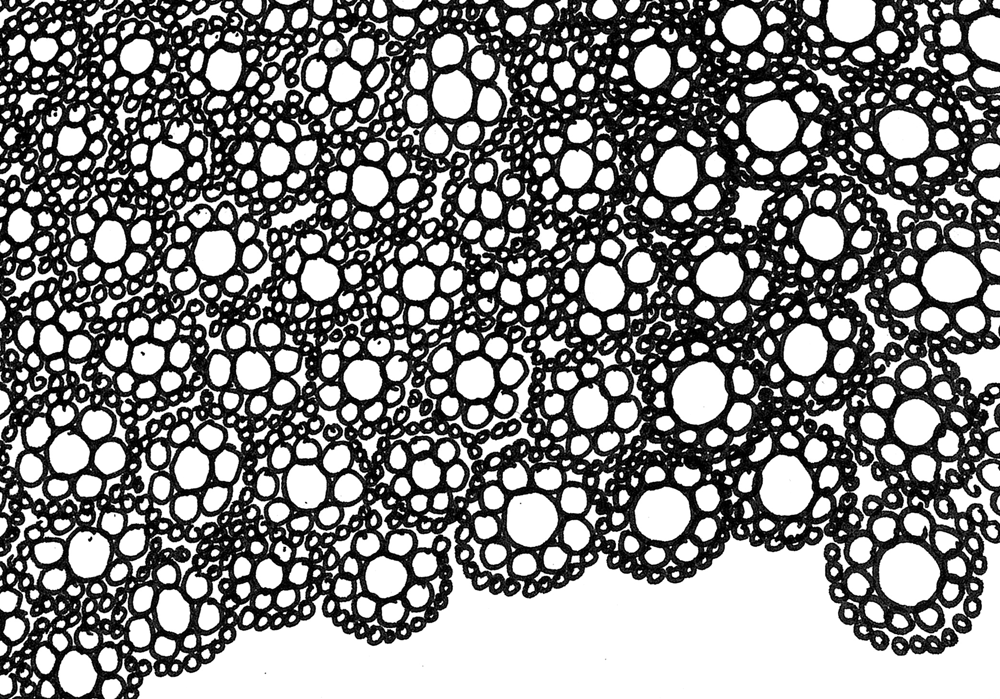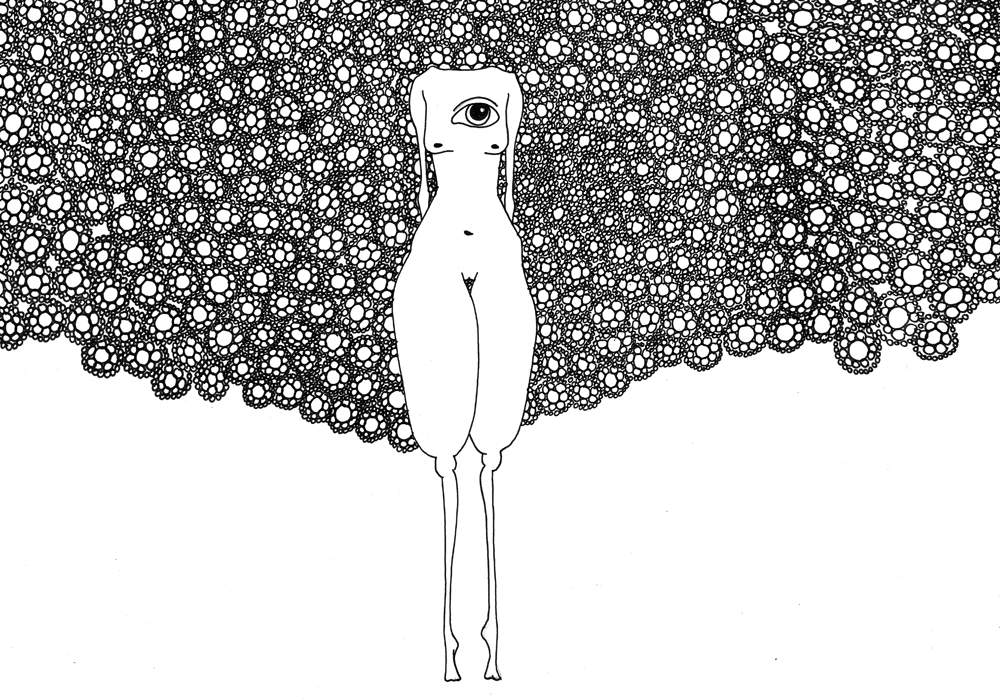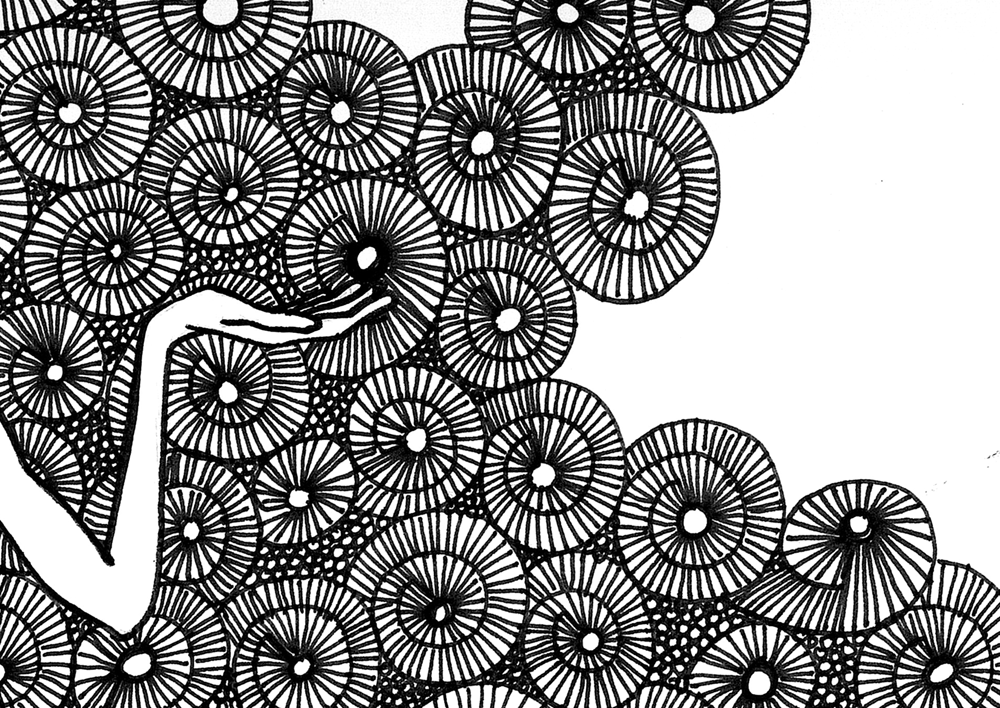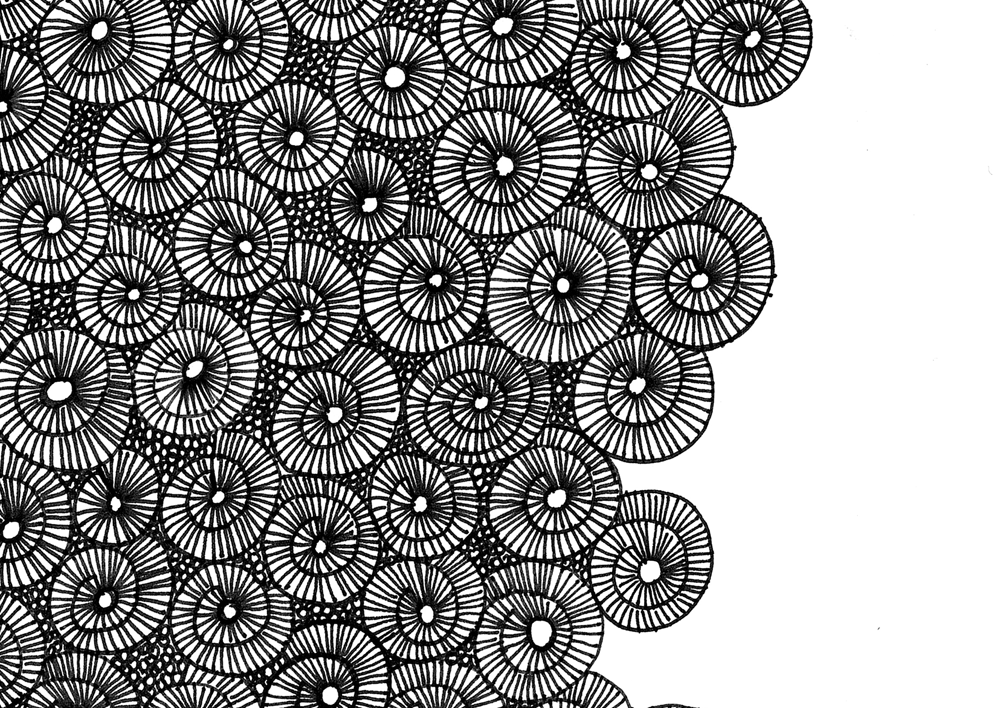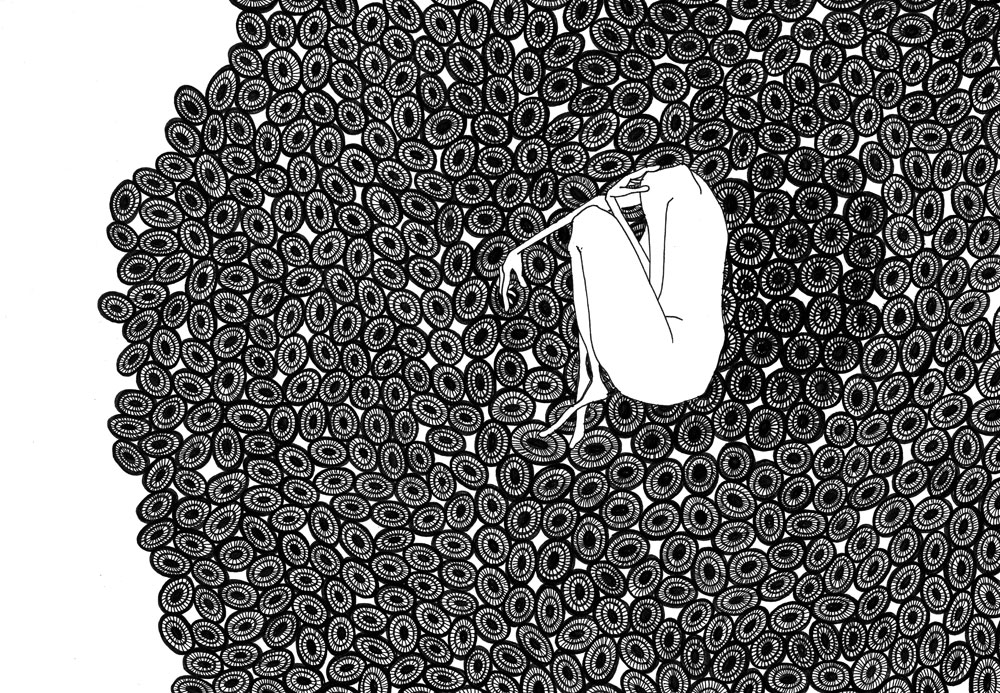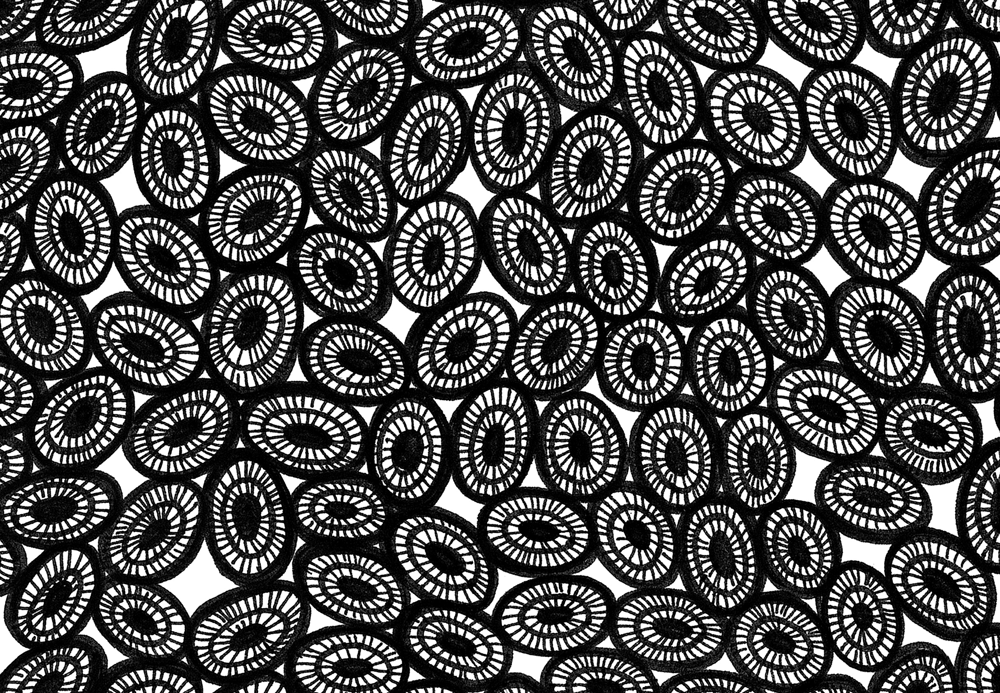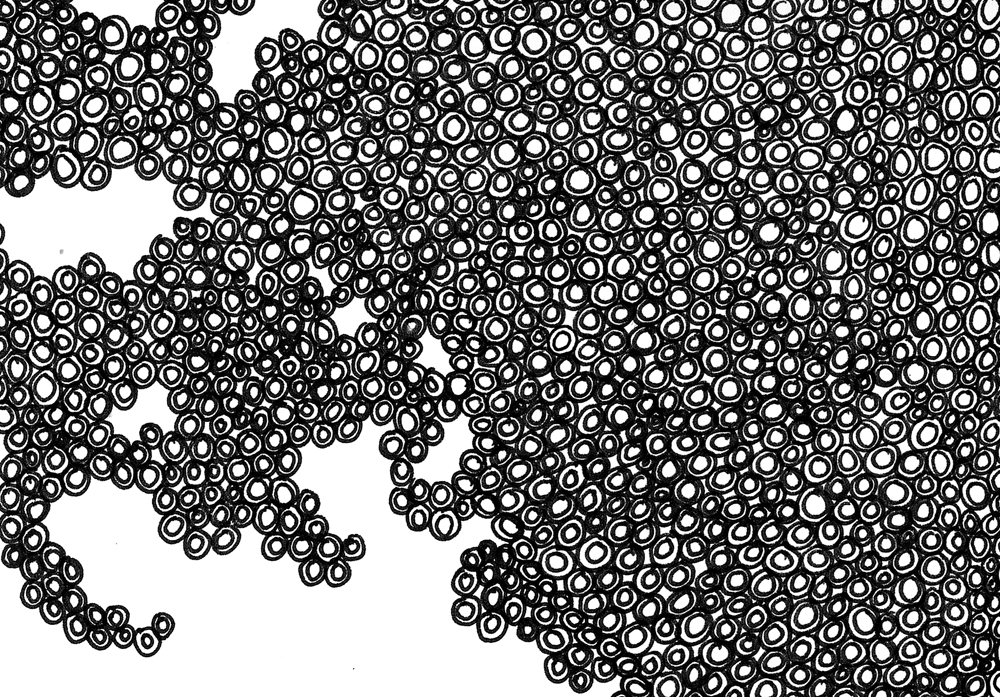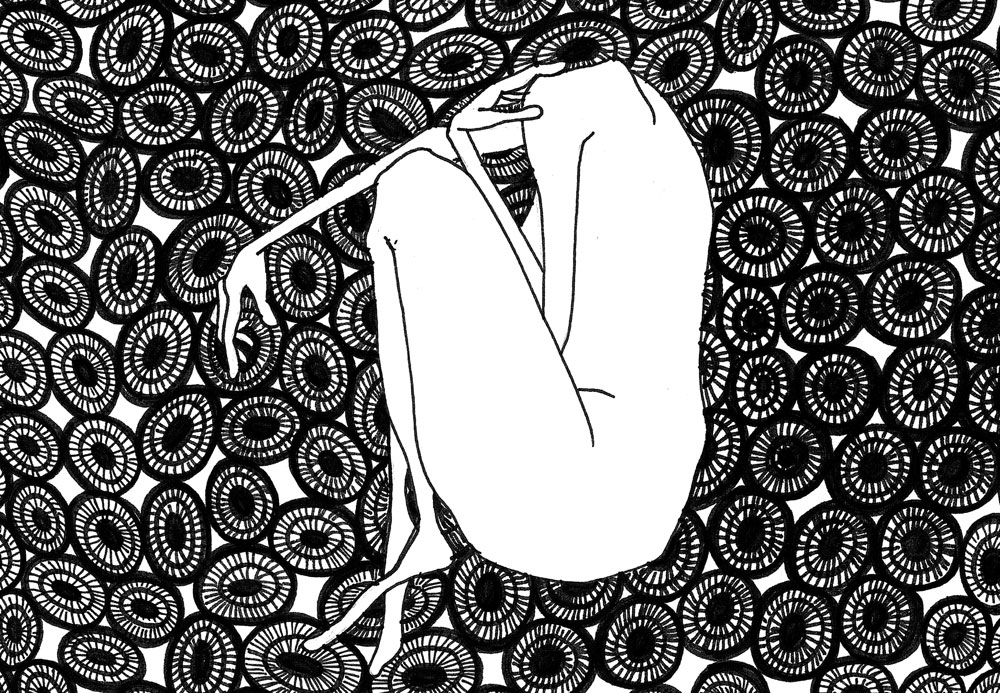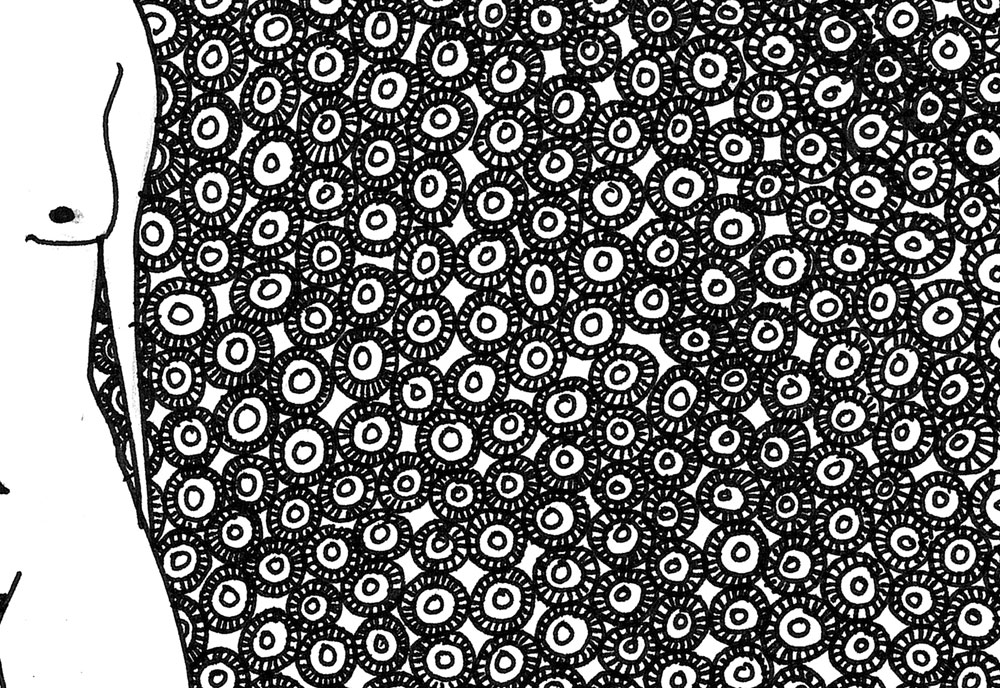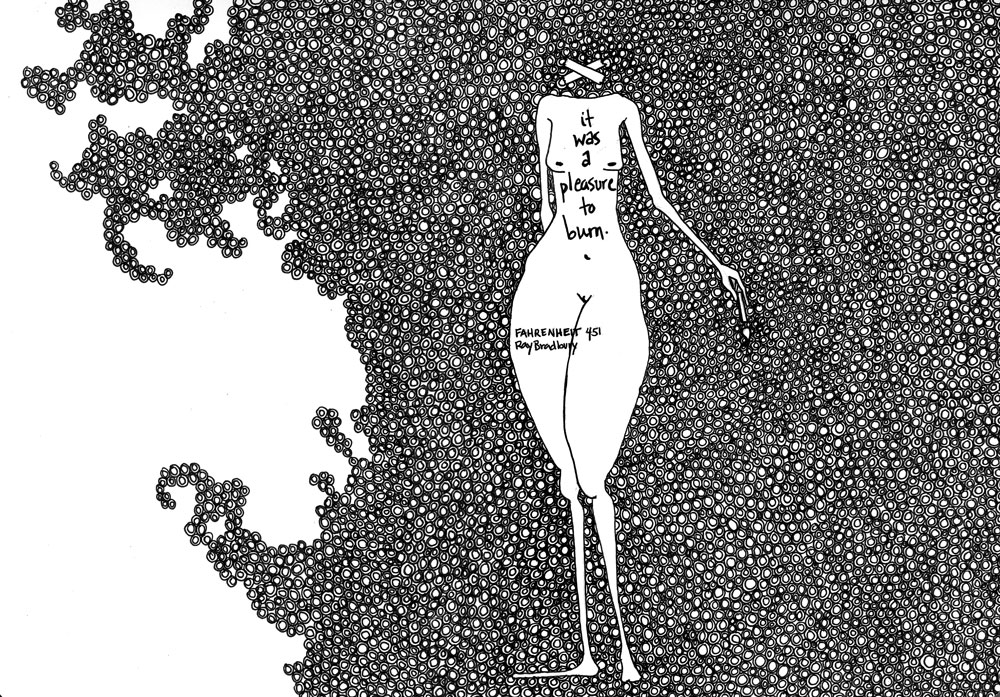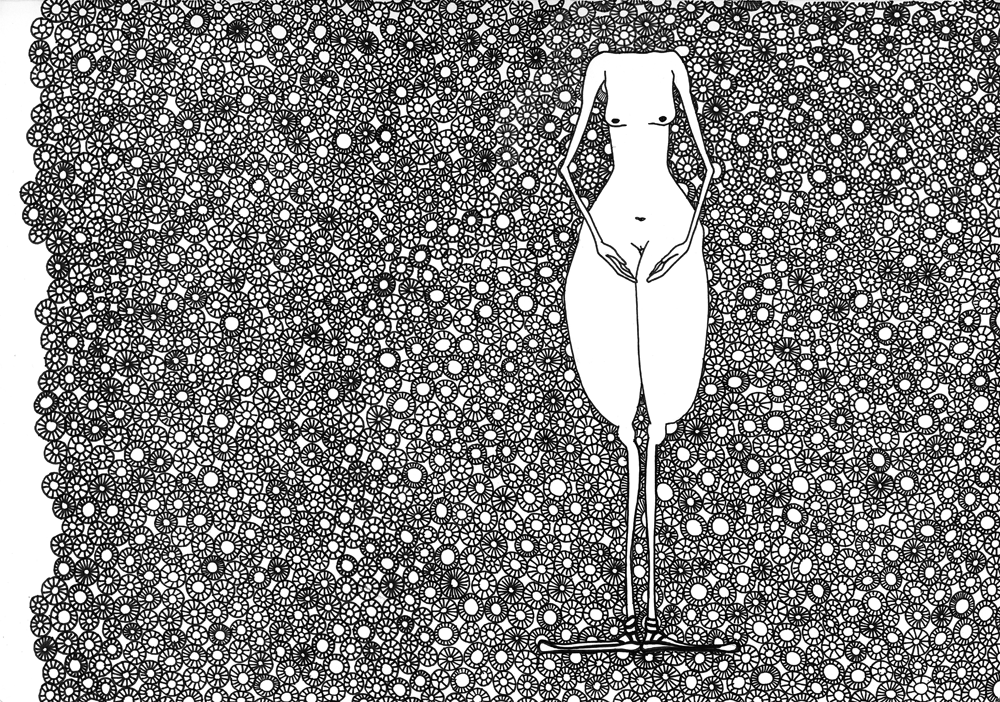“You want to jump in the creek?” my mother asks. It’s a Tuesday night in late July and we’re on the porch drinking Myers’s rum doused with lemonade. She’s wearing cut-off cargo pants and a Grateful Dead T-shirt full of holes; her cracked toenails are the chartreuse of limes.
Category: Fiction
Creek Dippers
Rodrigo Rey Rosa
Rav Grewal-Kök
[av_hr class=’custom’ height=’50’ shadow=’no-shadow’ position=’center’ custom_border=’av-border-fat’ custom_width=’100%’ custom_border_color=’#372a55‘ custom_margin_top=’30px’ custom_margin_bottom=’30px’ icon_select=’no’ custom_icon_color=” icon=’ue808′ font=’entypo-fontello’ admin_preview_bg=”] Rodrigo took Rosa’s clothes out of his closet and laid them on the bed beside her toothbrush, face cream, and paperbacks. He called to say she could come for her things while he was at work. It was almost nine.… Continue reading Rodrigo Rey Rosa
Rav Grewal-Kök
The Man I Could Be
Brenda Peynado
[av_hr class=’custom’ height=’50’ shadow=’no-shadow’ position=’center’ custom_border=’av-border-fat’ custom_width=’100%’ custom_border_color=’#372a55′ custom_margin_top=’30px’ custom_margin_bottom=’30px’ icon_select=’no’ custom_icon_color=” icon=’ue808′ font=’entypo-fontello’ admin_preview_bg=”] Once, my dad tried to give me the jacket the Army awarded him for serving in Korea. It looked like a varsity jacket, soft blue felt, pale arms. On the back it said, I know I’m going to heaven because… Continue reading The Man I Could Be
Brenda Peynado
White Knights
Howard Frank Mosher
[av_hr class=’custom’ height=’50’ shadow=’no-shadow’ position=’center’ custom_border=’av-border-fat’ custom_width=’100%’ custom_border_color=’#372a55′ custom_margin_top=’30px’ custom_margin_bottom=’30px’ icon_select=’no’ custom_icon_color=” icon=’ue808′ font=’entypo-fontello’ admin_preview_bg=”] “The Knights need a teetotaler driver tomorrow, Jimbo,” Harlan Kittredge said. “Be you a teetotaler?” It was the evening of June 20. Tomorrow the White Knights of Temperance, formerly the Kingdom County Outlaws, were headed to Boston to catch the… Continue reading White Knights
Howard Frank Mosher
Flash Flood
Alexa Hudson
[av_hr class=’custom’ height=’50’ shadow=’no-shadow’ position=’center’ custom_border=’av-border-fat’ custom_width=’100%’ custom_border_color=’#372a55′ custom_margin_top=’30px’ custom_margin_bottom=’30px’ icon_select=’no’ custom_icon_color=” icon=’ue808′ font=’entypo-fontello’ admin_preview_bg=”] Mama put a hand to her wide hip, plucked the cigarette from her mouth, and took a long look at Cliff. Pulled her eyeglasses halfway down her nose and said, “No you didn’t.” “Mama, be nice,” I said. It had… Continue reading Flash Flood
Alexa Hudson
Shirts and Skins
Brian Evenson
On their first date, a so-called blind one, Megan took Gregory by the hand and he let her. She led him into a space afflicted with mood lighting and for a moment he though it must be a bar, a remarkably empty one, but no, it was not a bar but an art gallery.
Ruby Thursday
Richard Adams Carey
Single, childless Augustus Cyril St. Clair would have filled both vacancies with the same presumed applicant, would have married David Biffenbaugh’s daughter the moment she touched his shoulder and trailed a finger like a hot wire through the hair on the nape of his neck.
Night of the Spiders
Sheldon Bellegarde
[av_hr class=’custom’ height=’50’ shadow=’no-shadow’ position=’center’ custom_border=’av-border-fat’ custom_width=’100%’ custom_border_color=’#372a55′ custom_margin_top=’30px’ custom_margin_bottom=’30px’ icon_select=’no’ custom_icon_color=” icon=’ue808′ font=’entypo-fontello’ admin_preview_bg=”] It’s almost midnight but I have got to clean out my bedroom closet. It’s packed with junk and has, like, the most vicious spider problem this side of a radioactive-arachno movie. I’m delving into terror. At least I don’t have… Continue reading Night of the Spiders
Sheldon Bellegarde
Dentist of the Wild West
Deborah Vlock
[av_hr class=’custom’ height=’50’ shadow=’no-shadow’ position=’center’ custom_border=’av-border-fat’ custom_width=’100%’ custom_border_color=’#372a55′ custom_margin_top=’30px’ custom_margin_bottom=’30px’ icon_select=’no’ custom_icon_color=” icon=’ue808′ font=’entypo-fontello’ admin_preview_bg=”] Right while I’m getting my braces, and saliva I can’t swallow is pooling in the back of my mouth, Doc Hallowell tells me about square dancing. “I do it every Saturday with Linda,” he says, “and after we’re done we… Continue reading Dentist of the Wild West
Deborah Vlock
Last Dog
Claire Burgess
Joel was worried about the dead dog in his trunk. Heat rose off the road in front of him, rippling the air like a photograph warping over a flame—he was beginning to regret his decision to pack the ice inside the trash bag with the dog. In this heat, he knew, the ice would be melting, soaking the fur, and if there’s […]
Day Trip
Noelle Catharine Allen
I had killed the engine, filed my nails, organized my wallet, and done a sketch of my left hand.
Faces at the Window
Sara Schaff
Our house was too big. It dwarfed me and my mother, who cried every year when we received the first winter heating bill.
The Hierophant
Lee Ann Dalton
Today, as soon as I draw a card and flip it over, I know it’s going to be a shakedown day, so I call the absentee line and make my voice low and slow like his when he has to speak to anyone with any degree of authority.
Saturday-Night Special
Terrance Manning, Jr.
Never go down to the ground with a wrestler.
And I’d shake my head all, Right, damn right, hell right, because it felt good to know he was a tough bastard, and I’d always, since I could remember, wanted to be a tough bastard.
Total War
Richard Farrell
With all four engines turning, one Superfortress rattles the ground like an earthquake….it sounds as if the brigades of Hell have been unleashed on Guam.
The Last Car
Anne Cocroft Adams
[av_hr class=’custom’ height=’50’ shadow=’no-shadow’ position=’center’ custom_border=’av-border-fat’ custom_width=’100%’ custom_border_color=’#372a55′ custom_margin_top=’30px’ custom_margin_bottom=’30px’ icon_select=’no’ custom_icon_color=” icon=’ue808′ font=’entypo-fontello’ admin_preview_bg=”] When people say there aren’t any accidents I just feel kind of sorry for them, the way you might feel about newborn rabbits, so defenseless and ignorant about everything. But the people who say things like that are usually people… Continue reading The Last Car
Anne Cocroft Adams
Lovesaw
Lam Pham
“It’s okay, Sister Frances,” Seana says. “He’s a family friend.”
“He’s Dad’s special friend,” Ciaran clarifies.
The nun looks at you with a special brand of suspicion normally reserved for prison convicts and the homeless.
Next of Kith
Jacob M. Appel
Through thirty-six years as a general surgeon at New York Episcopal Hospital—during which she extracted over two thousand gallbladders, fifteen hundred appendixes, scores of thyroid glands, three miles of small bowel, and eighty-four foreign bodies, including a tie clip left behind by a colleague—Dr. Emma Inkstable had grown increasingly skeptical of human weakness.
To the Waters
Debra Rook
Cypress, rust-water thick, knees knocking against each other in clumps of billowing muck. Snakes tangled like cut ropes looped by the current. Broad black mud with a stink so sweet you gather why the gators and deer and bear wallow in it.
Hallucinating Arkansas
Cody Walker
Herve was snoring—a little whir-whir on the rollaway—when Walt turned off the TV and the light. I can hear myself think, Walt thought. Or not think. I can lie here and hear myself not think. The snow outside caught his attention: it fanned out, reconvened, made circles around the neon WELCOME sign.
Pavlova
Kendall Klym
Recipe
5 jumbo egg whites, room temperature, if the room is cold and dark
1 1/4 cups caster sugar kept dry, despite dampness
scant 2 teaspoons brown malt vinegar
A Man Is Not a Star
Josie Sigler
A man does not set himself on fire.
A man works. Strapped to the ceiling, dangling over a half-made truck, he welds, he solders, twelve hours, fourteen hours, weekends, overtime.
Thus, he is tired at day’s end.
Levitation
Tricia Springstubb
Right around the time that Martha’s marriage fell apart, her only child became a runner. A distance runner. A runner of distances so long and arduous that some nights Martha crept into her room to examine her daughter’s sleeping feet. How did they do it? Mile after mile, hill after hill? The slapping and pounding! In the light from the hallway the twin soles glowed slick as sea stones. Martha could remember when they were brand new, and fit into the palm of her hand.
Shout Her Lovely Name
Natalie Serber
In the beginning, don’t talk to your daughter, because anything you say she will refute. Notice that she no longer eats cheese. Yes, cheese: an entire food category goes missing from her diet. She claims cheese is disgusting and that, hello? she has always hated it. Think to yourself…okay, no Feta, no Gouda—that’s a unique and painless path to individuation; she’s not piercing, tattooing or voting Republican.
A Lack of Order in the Floating Object Room
George Saunders
It’s like this, and it is no dream: First off, a plastic palomino and its stiff-armed rider float above a toybox. The rider is a dyed Custer, and everything’s red. I mean boots and kerchief and holster and eyebrows even.
Genius: an Introduction to George Saunders’ “A Lack of Order in the Floating Object Room”
Tobias Wolff
[av_hr class=’custom’ height=’50’ shadow=’no-shadow’ position=’center’ custom_border=’av-border-fat’ custom_width=’100%’ custom_border_color=’#372a55′ custom_margin_top=’30px’ custom_margin_bottom=’30px’ icon_select=’no’ custom_icon_color=” icon=’ue808′ font=’entypo-fontello’ admin_preview_bg=”] If it takes a kind of genius to strike gold, then I am a genius. In fact my genius blows me away sometimes. Today, reading George Saunders’ story “A Lack of Order in the Floating Object Room” for the first… Continue reading Genius: an Introduction to George Saunders’ “A Lack of Order in the Floating Object Room”
Tobias Wolff
First Call
David Hancock
Bobby Alamo’s dead. Just don’t know it yet. No footprints. Hair stopped growing. Sense of taste is gone. He only exhales now. Like he’s got one last breath inside him and needs to dole it out.
How to Prepare for a Disaster
Kirsten Clodfelter
Camilla often fantasizes about plane crashes. On the long, tedious commute up the GW Parkway to her two-bedroom apartment in Rockville, she imagines herself on a doomed flight out of BWI airport.
Not Knowing
Stacy Patton
She’d repeated the story often, imagining it so clearly—the dark eyes of the boys, dusty hair and dirty fingernails, the heat like a fist. She felt like it had happened to her, though it hadn’t. It was just a story she told.
Vishnu Floating on the Cosmic Ocean
Emma Komlos-Hrobsky
The Little Carrillo Camp Store has been out of marshmallows since your family arrived, so all week you’ve been using gummi bears in your breakfast s’mores instead. Your dad pitched the s’mores as a special treat, much better than, say, the bacon cheesy eggs he botched on day one of your trip.
Black Bear
Heather E. Goodman
Black bear rouses from hibernation at the end of April when I summon her. She emerges from her den by the cedar grove behind my childhood home in Tower, Minnesota where as teenagers, Mac and I made love. Weary from the long winter, she heads south to the Twin Cities. She cuts through clusters of budding birches under silver moonlight and labors through swampy cattails in honeyed sunrises. She gobbles fronds, catkins, and shoots to feed her empty belly.
Death by Pufferfish
Mayumi Shimose Poe
Kazuo Ikeda’s first and last taste of fugu had been the spring he turned seventeen. Seventeen was practically adulthood. Kazuo’s goals for his adult self were: 1. Do something interesting. This did not include camping in the car amongst redwoods with his parents; eating salted toffee while visiting historic Old Sacramento and nearly as historic old relatives; or catching the cable car to Fisherman’s Wharf only to end up overstuffed at Ghiradelli Square.
Nocturne
Karen Munro
I went home with a woman from the bar, which is something I never do. She had black hair with a long streak of grey in it, and I thought she looked tragic and romantic. She reminded me of my aunt Dolorosa, who grew a grey streak after all her stargazers died at once.
When Cody Told Me He Loves Me on a Weird Winter Day
Liz Prato
Cody and I are sitting side-by-side on a picnic table, looking toward the Rocky Mountains covered by ponchos of snow. Black-necked geese are honking, and I’m thinking, They must be lost. They shouldn’t be in Denver. They should be in Acapulco.
Worm Apples
Jeffrey Boyer
I sit in my parlor with the man on the phonograph.
“Can you help me find a policeman?” The man on the phonograph speaks like there is no danger. “Konnen sie mir helfen polizisten zu finden?”
Ota Benga in the Land of the Dead
David Yost
Ota Benga, flecked with shadow and besmeared with elephant dung, crouches at the base of a zebrawood tree. He hears branches crashing down, liana tearing free of the canopy, and then his prey shoulders past: the elephant, the meat that walks like a hill.
Dialogue
Deborah Vlock
Ute Schmidt’s first lesson, upon arriving in Boston, is that Americans talk fast and laugh at things that are not funny. She learns this while going through customs and immigration at Logan airport, when an officer asks her where she is hiding the sausages and then laughs immoderately.
Vultures
Shane Joaquín Jiménez
The kid crouched behind the chuparosas along the ridge. Down in the valley, the man stoked the fire with a long, crooked sage switch. The kid imagined that he felt the outer warmth of the fire, but the desert cold coiled cruel and true inside his bones.
Triumph
Chris Haven
Snow was coming down hard, better than an inch an hour according to the radio. Ed Wilson’s wife Winnie had gone to dinner with friends from the non-profit where she volunteered, unaware that the worst blizzard of the decade was blowing in.
Our Own Version of Iowa
Richard Adams Carey
It was 1963, but Barney Wetterer said we were living in the Year One, A.B.—After Bonnie. It was still less than a year since the Sprinkles had moved in, and Barney had the day he first saw Mrs. Sprinkle circled in red on his calendar.
Living In Sin
Tony Perkins
Lois Fleming and Bob Cuso are ninety-five years old, and they’re not married. It’s a scandal—they’re living in sin.
Champlain
Sarah Cornwell
We stand on the ferry’s top observation deck, I with my binoculars, elbows on the rail, trying to spot Camp Island—the bluff, the dock, the raft—and Rose leaning into the battering wind with closed eyes, savoring some private thought.
A Country Where You Once Lived
Robin Black
It isn’t even a two hour train ride out from London to the village where Jeremy’s daughter and her husband—a man whom Jeremy has never met—have lived for the past three years, but it’s one of those trips that seem to carry you much farther than the time might imply.
Bobby Malone
Clint McCown
Even before he got dropped off at his parents’ house, Bobby Malone had begun to worry. The streets near the square were deserted, and all the streetlamps were out, leaving the familiar neighborhoods in darkness
Dissolve
Aimee Pokwatka
When my lips hit the floor, I taste blood and think of kissing. The hardwood is gritty and scuffed from our shoes. I sit up and touch my mouth, find a feather from last night’s magic show. Richard keeps shouting the choreography, slapping his thigh to keep the beat.
